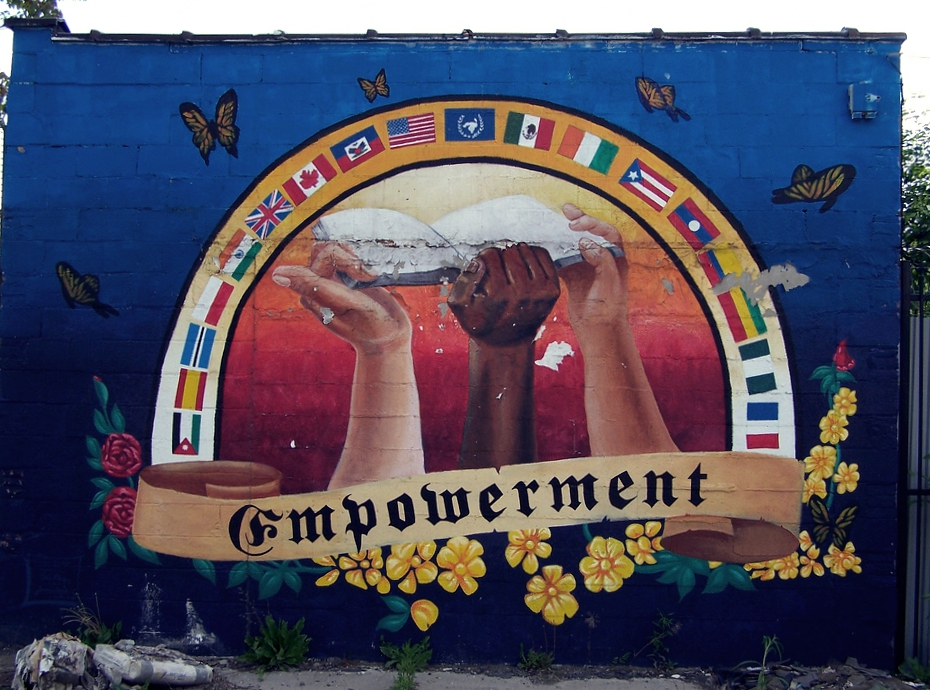By Lauren McCarthy.
- Empowering individual women will not on its own bring about a transformation in gender relations between men and women
- There’s a focus on economic empowerment at the detriment of other forms of equality
- If ‘empowerment’ becomes a byword for individualised wealth accumulation, led by corporations, then it loses its transformative magic
Approximate reading time: 2-3 minutes.
Girl Power meets Corporate Power
What does ‘empowerment’ mean? To give oneself some sort of power? This is the crux of empowerment’s initial meaning, but today the concept has been hacked apart and put back together again into some kind of neoliberal Frankenstein’s monster. We’ve seen adverts selling leggings, moisturiser and make-up touted as ‘empowering’, while the ‘clean, sculptural lines’ of designer clothing promise to empower. Sheryl Sandberg and other elite women business leaders speak of the empowerment that comes with ‘leaning in’ at work- but oh, don’t forget to #BanBossy. And some of the biggest investments in recent years have been seen in ‘women’s empowerment programmes’, especially those in supply chains in the global South.
Three Major Problems with Empowerment Inc.
In my recent publication in Business Ethics Quarterly I reflect on one of these programmes, and some of the challenges that come with our modern-day contortions of empowerment.
First, there’s the focus on individuals. Gender equality is about social transformation- it’s about equality and equity for human beings regardless of their sex or gender. So a focus on empowering individual women may make life better for that one woman- but it will not on its own bring about a transformation in gender relations between men and women.
Second, there’s the focus on economic empowerment at the detriment of other forms of equality. Of course it’s great if women can earn more from their micro-businesses (or earn mega-bucks as CEOs). But without the social standing to challenge patriarchy, and without voice in political systems, long-term gender equality is far from won.
Third, we need to talk about who is doing the empowering. So much of corporate rhetoric on empowerment is corporate led- ‘we will empower’, ‘we will enable’. Where are the voices of the women themselves in all this? In the 1960s and 70s, in the era of civil rights movements and women’s liberation, empowerment was associated with consciousness-raising and the importance of people (often in groups) recognising the structural power relations which oppressed them- and their own ‘power within’ to challenge oppression. Empowerment, then, is related to society- and to oppressed groups finding their own economic, social and political power within that society. Empowerment is not ‘done onto’ another.
Remember Radicalism?
Promoting gender equality is a much-needed string to the CSR bow. Yet if ‘empowerment’ becomes a byword for individualised wealth accumulation, led by corporations, then it loses its transformative magic. As my colleague Jeremy argued in a recent BOS blog– we need to make feminism- and by association empowerment- radical again.
Lauren McCarthy is a Lecturer in Strategy and Sustainability at Royal Holloway, University of London and a Velux Visiting Fellow, at Copenhagen Business School. She tweets @genderCSR.
Pic by Tara, edited by BOS.
